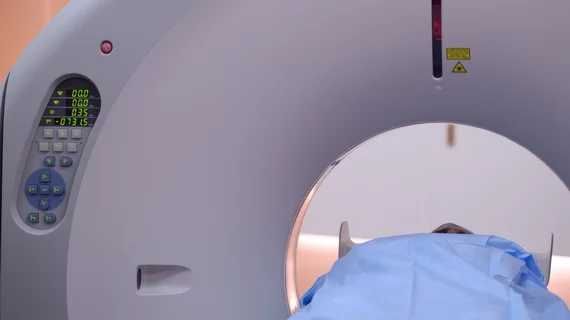Irish radiologist misreads CT, misses tumor of patient who died 2 weeks later
A locum radiologist working at Mayo University Hospital in Castlebar, Ireland, reportedly failed to read an elderly woman’s CT correctly upon her admission in September 2017, missing a rectal tumor that killed her two weeks later, the Mayo News reported this week.
The patient, 82-year-old Ann Niland, died in the hospital Sept.18, just 14 days after she was admitted for nausea, vomiting, epigastric pain and dehydration, the Mayo News wrote. The initial CT report said the scan came back with “no acute abnormalities,” but a radiologist reviewing the study just hours before Niland’s death found a tumor.
The consultant treating Niland said he ordered another abdominal CT the day of her death due to deteriorating symptoms. The scan showed bowel abnormalities that were later clarified with revision of the initial images.
Mayo coroner Patrick O’Connor said the misreading was a “serious matter,” and one the hospital should be careful not to duplicate. He suggested officials look into the situation, as other patients may have been affected.
“While it was acknowledged that Ms. Niland may not have been treated differently, it was important that steps were taken to ensure that this does not happen again,” the Mayo News wrote.
Read the comprehensive report below:

